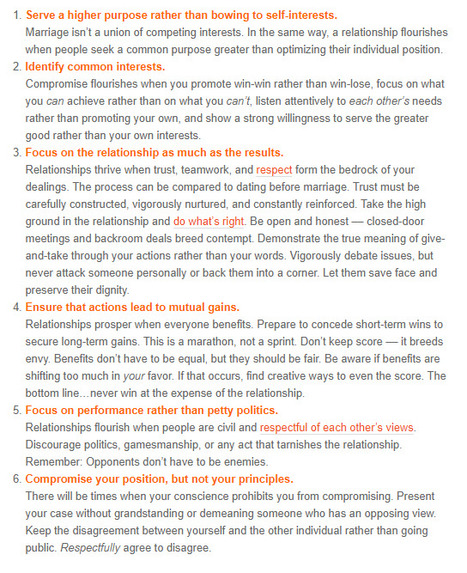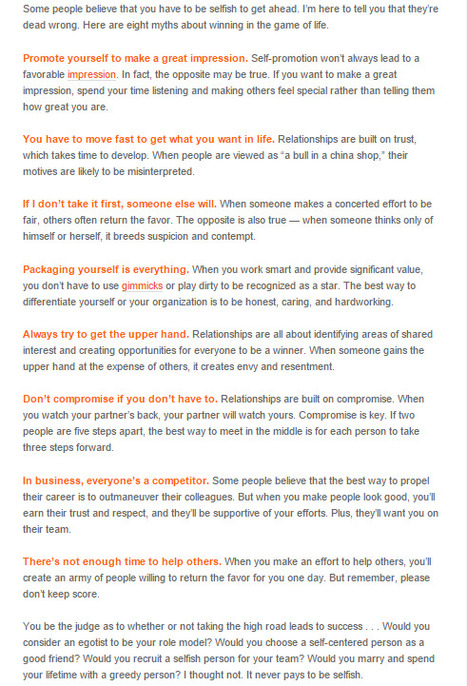If you define winning as getting the upper hand, backing your opponent into a corner, and winning at any expense, you’ve got it all wrong. You may win in the short term, but think about the relationship going forward. Do those actions build trust, teamwork, and respect? I think not. You’ve probably created enough animosity, distrust, and jealousy to last a lifetime. In other words, you may have won the battle, but lost the war. There’s a better way…winning doesn’t have to be at someone’s expense.
Compromise: A Win-Win Strategy
Some people need to win at all costs because their ego won’t accept anything less. They’d rather win personally than accomplish something meaningful. Compromise isn’t a synonym for surrender; it’s a winning battle plan.
Learn more / En savoir plus / Mehr erfahren:
http://www.scoop.it/t/21st-century-learning-and-teaching/?&tag=Win-Win-Situation
http://www.scoop.it/t/21st-century-learning-and-teaching/?&tag=Frank+SONNENBERG



 Your new post is loading...
Your new post is loading...














Learn more / En savoir plus / Mehr erfahren:
http://www.scoop.it/t/21st-century-learning-and-teaching/?&tag=Win-Win-Situation
http://www.scoop.it/t/21st-century-learning-and-teaching/?&tag=Frank+SONNENBERG